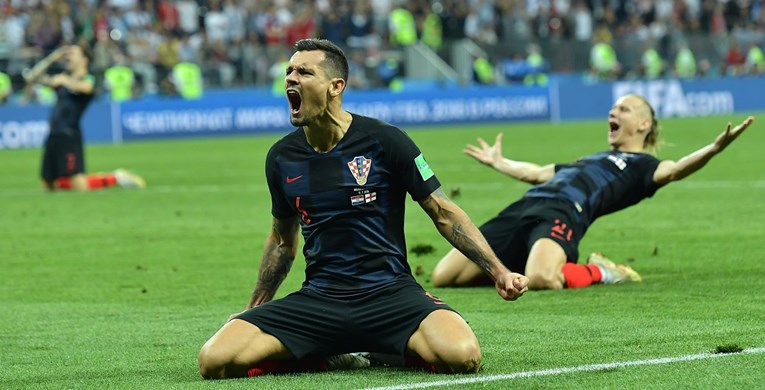Sports physician: Professional athletes will have to receive COVID-19 vaccine

WE TALKED about reviving the Croatian football with Zoran Bahtijarevic, the Croatia national football team's physician and the member of the UEFA's medical committee, and about the measures that are going to be implemented on stadiums during the coronavirus pandemic.
The Croatian Coronavirus Task Force still hasn't given the green light to a continuance of the competitions in the Croatian Football League and the Croatian Football Cup. Do you expect it to happen, and do you anticipate that we are going to watch football on Croatian pitches on May 30?
"Croatia currently has one of the most favorable epidemiological situations in Europe, and I don't see the reason why sports and the championships shouldn't continue. But the fact remains that the virus has changed our lives, and it'll also change sports until we develop the vaccine against coronavirus. I don't like to hear coronavirus being compared to the flu because we still don't know if coronavirus will be seasonal like the flu, or if it will scourge as SARS did for a year and a half. We have to stick to all prevention measures; we mustn't relax. When a vaccination becomes available, we'll use it to protect the people at the highest risk, elderly people, and the people that travel a lot for business purposes. Athletes are certainly among them. Football is very specific in that segment because many people participate in an organization of a match, around 30-40 people. The game itself doesn't concern me; there's a slim chance of getting infected on the field because the contact needed for the infection, according to our knowledge about coronavirus to date, should be at least 18 seconds on average during the match. Those are the German scientists' data. I'm concerned more about the football players' personal contacts, and we have to reduce the risk in that area.
What does that mean specifically?
"Until we find a vaccine, we are talking in terms of football before and after coronavirus. Football players will face changes in their private lives: there will be less social gatherings, they will act differently in locker rooms, contacts will be reduced. We are all going to have to change our habits".
The championship in France is canceled, there is no decision about continuing the competition in Italy, and time is running out. Will the European competitions, which UEFA plans to launch, be at the edge of regulations because of different situations and setups in the European countries?
"Individual decisions are in question, and they are primarily the responsibility of the government and the experts. Epidemiological situations in France and Italy are not as favorable as in Croatia, and the decision to suspend the competitions is logical. In organizing football after coronavirus, we'll all have to be flexible. When I refer to the period after coronavirus, I mean the period when the vaccine will be available. The situation in Croatia is currently good, but what are we going to do if coronavirus comes back in September? I wouldn't want to act hastily and jump to conclusions that cannot be confirmed at the moment. Each country has its own motives for the continuation of sports: such as television rights and huge financial losses, while the situation in Croatia is different. I'm against the complete suspension of competitions because of the players' health. Without the football matches, a half-year pause is ahead of them, and that's a long time. They'll need time to get back in shape. Another motive is psychological because we'll all feel good going back to work; it brings positivity. It has to be said that the countries that allow competitions will draw attention and boost viewers' global ratings that are eager to watch football, from which our clubs and players can benefit from."
When it comes to prevention measures, what can we expect of big competitions such as the European championship next year?
"We cannot look that far away. Four months ago, we didn't even know that the virus exists, so we cannot be prophets and predict what will happen in June next year. I've already pointed out the possibility that the virus will return, and we have to keep monitoring the situation and react consequently. In the Croatian Football Federation, we've set up a task force consisting of medical experts and the people from the Federation responsible for the competitions' technical preparation. UEFA follows the same patterns, safety is certainly going to be the top priority, and certain habits in traveling and access to stadiums are going to change. Testing of players, protective barriers, space disinfection - all of that will become normal in stadiums. That's why it's important to work on improving the infrastructure of the football fields in Croatia."
You've mentioned that football after coronavirus comes with the finding of the vaccine, but there are more and more anti-vaxxer athletes, for example, Dejan Lovren and Novak Djokovic. What are your comments from a doctor's standpoint?
"I don't want to talk about their motives. Some parents are against vaccination, but personally, I think that, along with anti-fascism, vaccination is one of the greatest accomplishments of the twentieth century. In specific counties where vaccine coverage isn't on a high level, measles returned. Children die from a disease that we considered eradicated for years. This problem should be discussed in sports, too. It's a political, medical, and philosophical question. A similar situation is with the anti-doping testing, there are athletes against it, but they cannot compete in professional sports. Individuals that refuse to take a vaccine are not going to be able to play sports professionally in the future; that's my personal view and belief. We have to look after the health of athletes; it's a prerequisite for competitions."



 Facebook
Facebook
 Google
Google